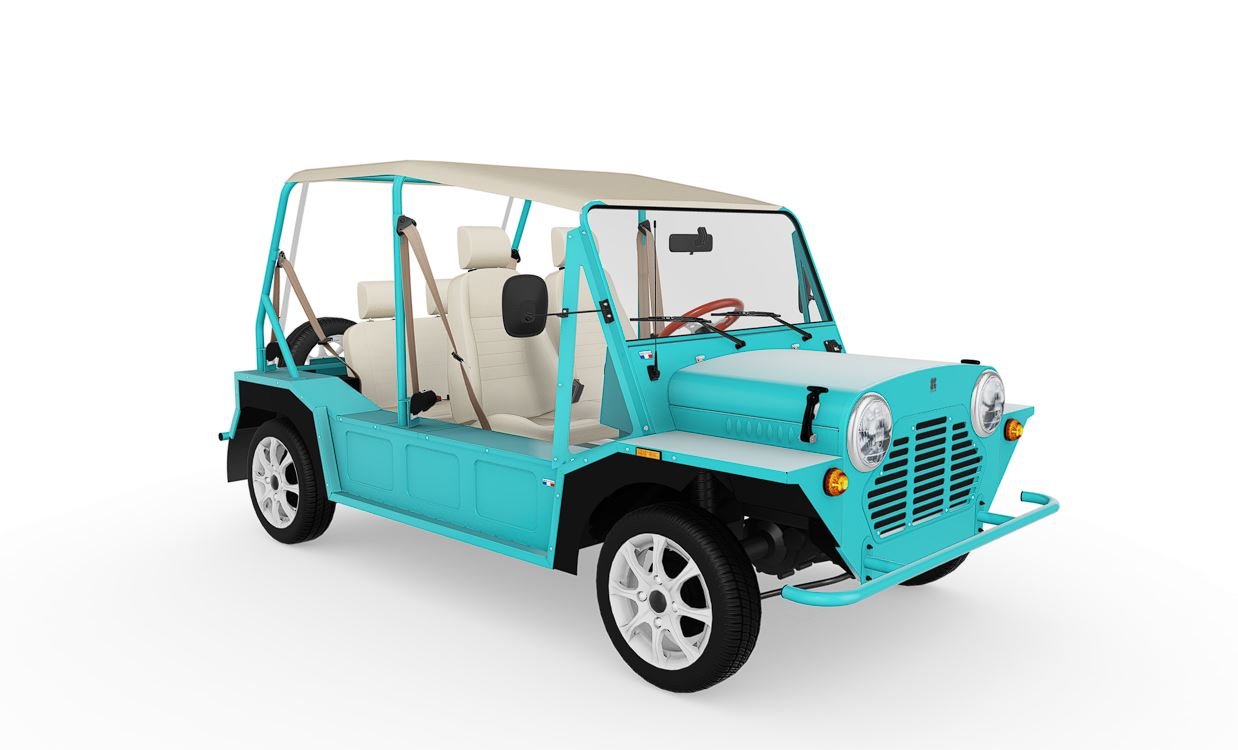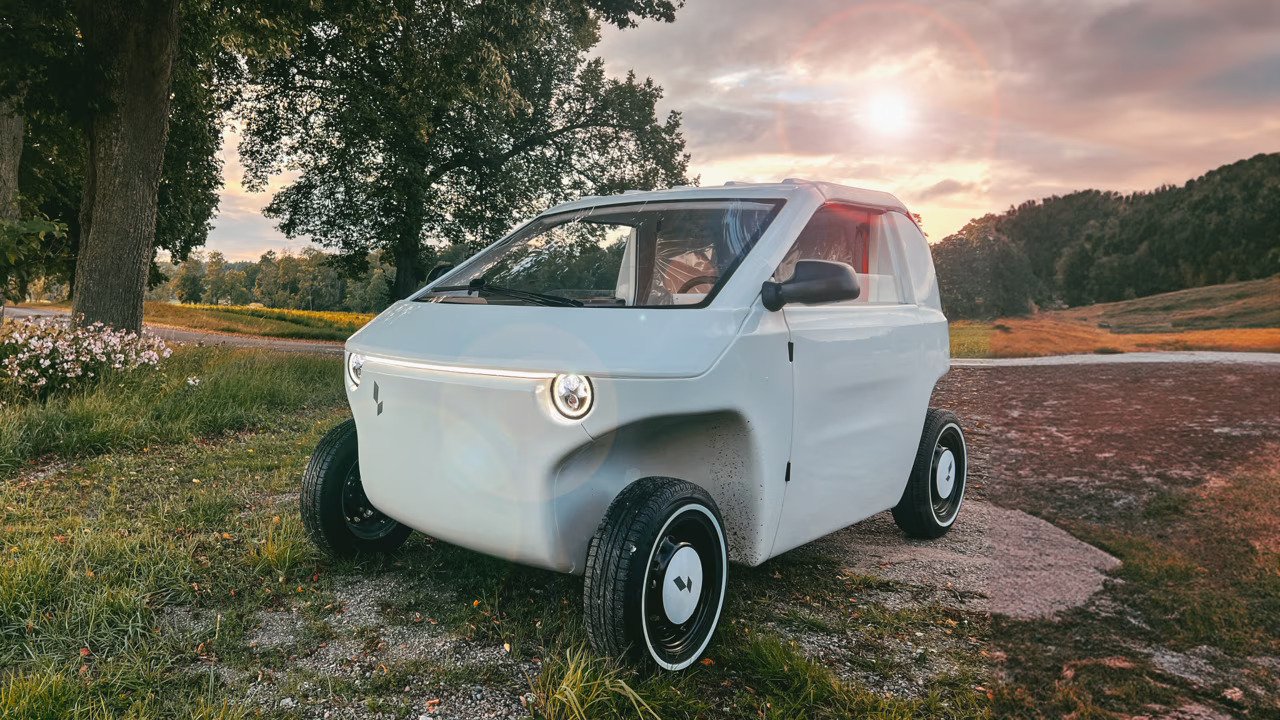In Europe, many of us are privileged to live in walkable cities with an abundance of micromobility, public transport, and rideshare options. In many places, cars are simply not built for the stresses of modern cities. From traffic to parking, owning a four-wheeler in urban environments often proves more of a hindrance than a boon. However, it's an uncomfortable truth that SUV sales are increasing.
SUVs dominate — even where they don't belong. In 2021, SUVs accounted for approximately 48 per cent of passenger car sales in China.
In Europe, buyers also shifted away from hatchbacks and sedans, with SUVs — albeit including hybrid and EVs — making up 45.5 per cent of new car purchases, compared to 52.3 per cent in the United States. By 2024, the SUV trend had only intensified: SUVs represented roughly 54 per cent of all new passenger vehicle registrations across major markets in Europe. However, vehicles are smaller than a lot of the SUVs in the US.
According to one startup, it doesn't have to be this way, especially as most car use involves one or two people travelling a short distance and carrying a relatively small amount of stuff in something constructed from over 1800kg of metal. Further, these behemoth vehicle sits idle for over 90 per cent of the day, taking up space that could be used for better purposes.
A lighter vision for Europe's roads
Luvly, a Swedish startup based in Stockholm, believes there's a better way — and CEO Håkan Lutz says the future of European roads is light urban electric vehicles.
For nearly 20 years, Lutz has been at the forefront of the mini-mobility movement as a developer and pioneer in reimagining urban transportation. A passionate entrepreneur and business professional, he surrounded himself with like-minded individuals who share his interests in cars, the environment, climate, safety, and impact.
Luvly's core offering is a patented flat‑pack platform that enables the design, shipping, and rapid assembly of lightweight electric vehicles called Light Urban Vehicles (LUVs).
Using sandwich-composite chassis panels and energy-absorbing foam modules, their architecture achieves high safety, low weight (between 380 – 400 kg), and — critically — shipping efficiency.
A single container can fit as many as 20 unassembled vehicles, massively reducing CO₂ emissions and logistics costs. The vehicle uses very small motors and two removable battery packs — just one-tenth the capacity of a typical EV — which can be easily charged like an e-bike, eliminating the need for charging stations or battery-swapping infrastructure.
Further, while it could be technically considered a microcar, Luvly O is the same size as a first-generation smart car, comes loaded with safety tech and has a trunk space of up to 269 litres and easily fits Lutz, who stands at 193cm (6' 4).
A platform for others to build on
Rather than compete head-on with legacy OEMs, Luvly licenses its platform to automakers and mobility operators, allowing licensees to build their own LUV models using Luvly's chassis and manufacturing process. Luvly also provides a full-support toolkit covering concept development, engineering, prototyping, testing, and production ramp-up.
Why many microcar startups fail — and why Luvly hasn't
EV's, especially Light EVs and microcars, are a tough environment for startups.
Over the last few years, we've seen the failure of Uniti, Carver, and even more abroad, such as Arcimoto, which I've had the pleasure to ride in over the Golden Gate Bridge in San Francisco. Lutz suggests that there are two key reasons that Luvly has been able to succeed:
"First, we went deep on the tech. We're not using the same technology as everyone else—we developed a truly different solution, and that lets us do things that are incredibly hard to combine: sustainability, affordability, and safety in a single product."
Second, people underestimate the difficulty of bringing a new vehicle to production and marketing it globally.
"It's incredibly costly and full of caveats. There are dominant players in this industry for a reason.
We realised, over time, that the right way forward is to offer something to the experts — companies that already know production, marketing, and how to navigate market constraints — and give them a solution to do something new, something they don't typically do."
Significantly, Luvly fits into existing automotive OEM supply chains. Everything used in a Luvly is essentially the same as what you'd find in a traditional car, just smaller and lighter.
Further, Luvly manages to create a safe but still light EV, with a safety cell that can be protected, with very affordable materials, while remaining strong and light. Lutz admits, "I won't claim it's as safe as a tank — but I also don't think we should be driving tanks on city streets."
"Because the whole thing weighs less, we can downsize components. It's like: every nut you remove reduces weight, and that lets you remove another one elsewhere."
Challenging the SUV mindset
When it comes to the increasing dominance of SUVs, Lutz asserts that while Luvly can't single-handedly change the entire market — there are about 2 billion cars out there — it believes there's a market that hasn't yet realised what it needs.
"People don't always know what they want until they see it. And there are beautiful small cars out there, but very few that could claim to truly be a replacement for a car," asserts Lutz.
The company ensures it's possible to offer consumers an alternative: something that does the same job as a car but uses a fraction of the resources.
According to Lutz, Europe is a natural fit for vehicles like Luvly – an affluent population, a strong desire to reduce climate impact. But he shared that to the company's surprise, they've had massive interest from the US too.
"And in Asia, ultralight vehicles are already the norm — tuk-tuks, rickshaws, etc.— but safety is often lacking. We think we can help there."
When it comes to the auto industry's response to lightweight, low-cost EVs, Lutz believes that the industry is somewhat stuck:
"Big cars, with more equipment, deliver higher margins. Simpler, smaller vehicles have low profitability, which is a problem. But what consumers — and the planet — really need are smaller, simpler vehicles. We hope to enable that shift by providing a way to build safe, sustainable, profitable ultralight cars."
Fortunately, interest in microcars persists.
The LUV and microcar movement is evolving slowly but steadily

French company Kate acquired the legacy brand Nosmoke and is developing the Kate K1, a more affordable, four-seater microcar aimed at everyday use, targeting a 90 km/h top speed, ~200 km range, powered by lithium batteries and a €15,000 price point. France is also home to Circle Mobility and Squad Mobility, although these companies are yet to deliver a vehicle to market.
In terms of conventional vehicle OEMs, Microlino sells two types of vehicles, and Honda recently launched the N-One, its smallest four-wheel vehicle.
And in terms of manufacturing innovation, In the UK, Helixx is developing a 'Factory in a Box' solution that enables customers to build mini commercial electric vehicles (EVs) anywhere in the world. Further, microcars and LEVs are part of car-sharing fleets such as drivemycar in Switzerland.
A united front for policy change
Luvly is also a member of The Microcar Coalition, a European alliance of electric vehicle startups promoting L7e-class "fast microcars" as a sustainable and space-efficient alternative to traditional cars.
The coalition advocates for regulatory support, equitable subsidies, and urban planning policies that prioritise compact electric vehicles over large, high-emission SUVs. The coalition's goal is to reshape urban mobility by elevating microcars as a practical solution to reduce emissions, reclaim public space, and support more inclusive, efficient transport systems across Europe.
While the Luvly O prototype has not yet entered certified road production, Stellantis is currently evaluating Luvly's flat-pack vehicle tech for possible integration with Stellantis' urban EV portfolio.
Lutz contends, "everything we've seen from them suggests they're serious—this isn't just a token project."



Would you like to write the first comment?
Login to post comments